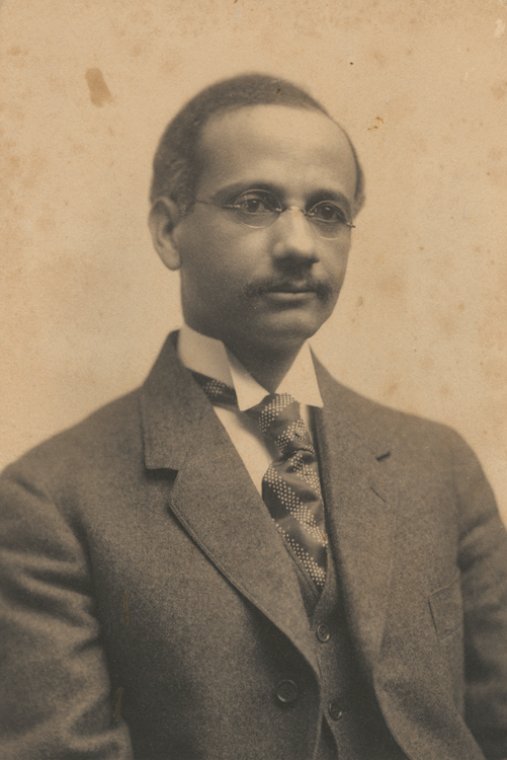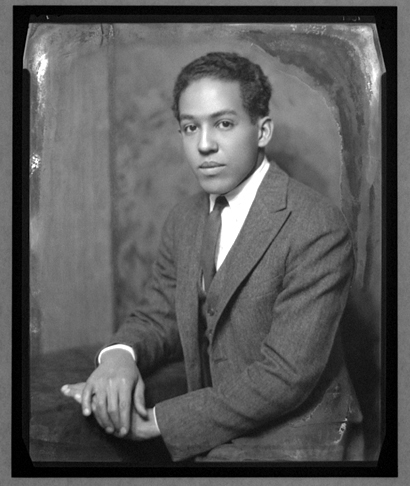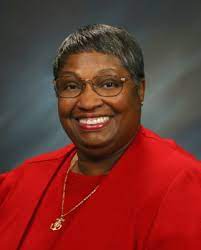
 Dr. Solomon Carter Fuller (1872–1953)
Dr. Solomon Carter Fuller (1872–1953)
Dr. Solomon Carter Fuller was born in 1872 and is known for being the first African American psychiatrist, however, his talents were not only reserved for psychiatry. Dr Fuller was also a pioneer in the field of Alzheimer’s disease. Dr. Fuller was a research assistant for Alois Alzheimer and has not been significantly recognized for his translation of this pivotal work on Alzheimer’s into English. Fuller also was the first to report the ninth case of Alzheimer’s disease to be described and this publication is now known as the first comprehensive review of Alzheimer’s.
Source: Mohammed H. Recognizing African-American contributions to neurology: the role of Solomon Carter Fuller (1872–1953) in Alzheimer’s disease research. Alzheimer’s & Dementiadoi:10.1002/alz.12183 (2020).
 Dr. Clarence Sumner Greene Sr (1901–1957)
Dr. Clarence Sumner Greene Sr (1901–1957)
In 1953, Dr. Greene was named the first Black neurosurgeon in America. Dr. Greene started his career as a dental practitioner after graduating from the University of Pennsylvania in 1926 with his doctorate in dental surgery. He later returned to education to pursue his career in neurosurgery after completing a year of dental work. He then graduated from the Howard University College of Medicine in 1932 in the top ten percentile of his graduating year. After being appointed as a professor at Howard University he travelled to the Montreal Neurological Institute to finish his residency in neurosurgery. Once returning to Howard University he performed the first craniotomies for intracranial aneurysms and created the surgical protocols that could be put in place for stroke interventions.
Source: McClelland S 3rd, Harris KS. Clarence Sumner Greene, Sr.: the first African American neurosurgeon. Neurosurgery. 2006 Dec;59(6):1325-7. doi: 10.1227/01.NEU.0000245611.09356.6D. PMID: 17277696.
 Dr. Mary Logan Reddick (1914–1966)
Dr. Mary Logan Reddick (1914–1966)
Dr. Mary Reddick was renowned for her contributions towards neuroembryology. Dr. Reddick focused her studies on nerve cell differentiation in chick embryos and techniques for transplanting tissues. In 1943 her Doctoral dissertation from Radcliffe College (Harvard University) focused on “The differentiation of embryonic chick medulla in chorioallantoic grafts,” studying the neurodevelopment of chick’s brain cells. She returned to Morehouse college where she taught, becoming the first woman to chair the biology department, and be promoted to full Professor, she remained here till 1951. Dr. Reddick was named the first African American woman to receive the Ford Foundation science fellowship in 1952 to enable her to study abroad. Dr. Reddick chose to study embryology at Cambridge University.
Source: https://www.blackpast.org/african-american-history/mary-logan-reddick-1914-1966/
 Dr. Esther Latunde Odeku (1927–1974)
Dr. Esther Latunde Odeku (1927–1974)
Dr. Odeku has been recognized as the first African American man to be trained as a neurosurgeon within the United States, in the 1960’s he became the second African American to be certified by the American Board of Neurological Surgery. Dr. Odeku returned to Nigeria to pursue the rest of his career and pioneer the expansion of awareness of the field of neurosurgery in Nigeria – facilitating the careers of future neurosurgeons.
Source: McClelland S, Harris KS. E. Latunde Odeku: the first African American neurosurgeon trained in the United States. Neurosurgery 60(4), 769–772 (2007).
 Dr. Audrey S. Penn
Dr. Audrey S. Penn
Dr. Audrey Shields Penn (born in 1934) is an American neurologist and emeritus professor. Her major area of research was in myasthenia gravis. Dr. Penn was elected President of the American Neurological Association in 1994. She was deputy director of the National Institute of Neurological Disorders and Stroke (NINDS), and is the first Black woman to serve as an (acting) director of an Institute of the National Institutes of Health.
In 1989, Dr. Penn was elected second vice president of the American Neurological Association, then first vice president in 1990, and became the first woman president of the ANA in 1994. In this role she served as an important role model for many women physician-scientists. Dr. Eva Feldman, another prominent ANA president said “In brief, she told me, in so many words, I had an opportunity to change the ANA and increase its “voice.” I know I speak for all women of the ANA to say Audrey was and is a role model, mentor and has always had an open “door” and good counsel.”
In 2021 the ANA established the Audrey S. Penn Lectureship Award which is provided to an ANA member who conducts outstanding research, program-building, or educational scholarship to promote health equity on health care disparities.
Source: https://myana.org/about-awards/audrey-s-penn-lectureship-award

 Dr. Alexa Irene Canady
Dr. Alexa Irene Canady Dr. Emery N. Brown
Dr. Emery N. Brown